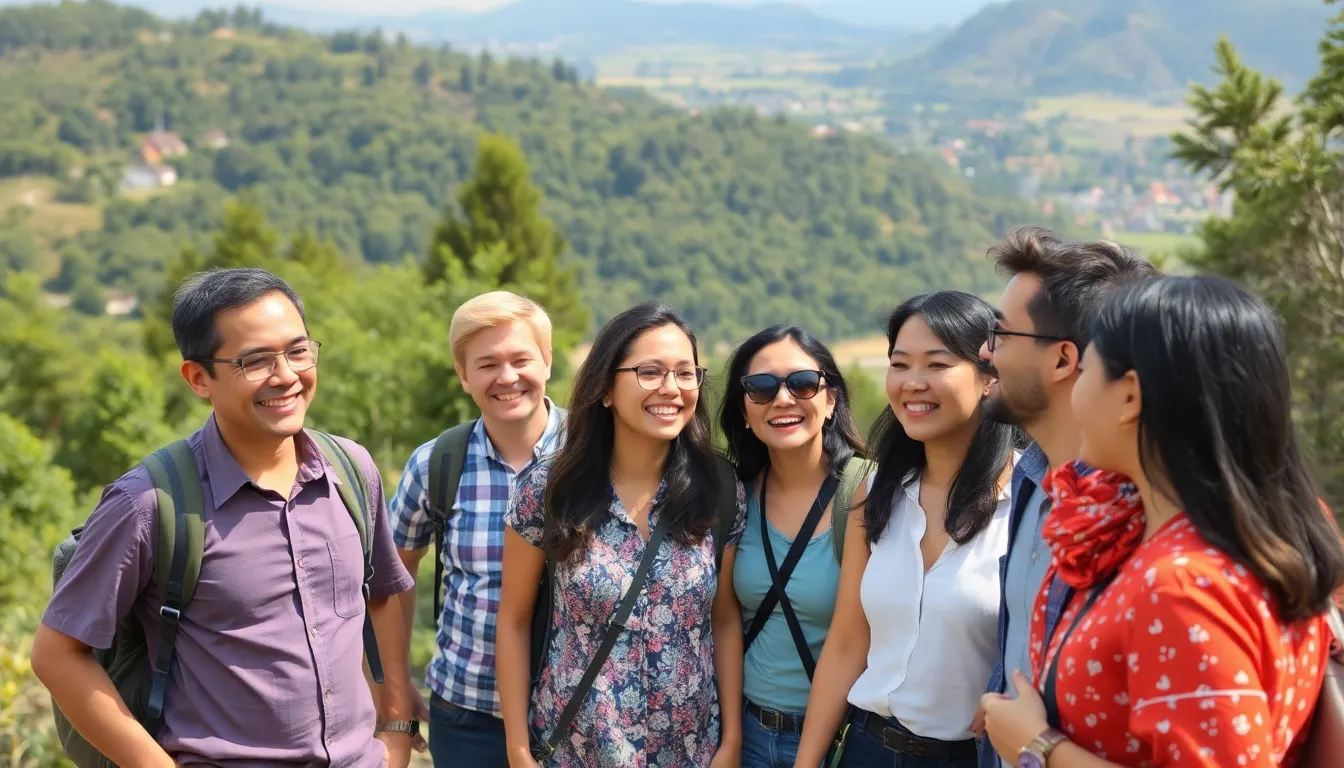Planning travel for a group can feel like a monumental task. Whether it’s a family reunion, a corporate retreat, or a trip with friends, coordinating schedules, preferences, and budgets can quickly become overwhelming. Yet, with the right approach, group travel can transform into an unforgettable experience filled with shared memories and adventures.
Understanding the unique dynamics of group travel is essential. It requires careful consideration of accommodations, transportation, and activities to ensure everyone’s needs are met. By focusing on effective communication and organization, planners can create a seamless travel experience that keeps everyone engaged and excited. This article delves into practical tips and strategies to simplify the process, making group travel enjoyable for all involved.
Table of Contents
ToggleUnderstanding Travel Arrangements for Groups
Group travel requires careful organization and a thorough understanding of the dynamics involved. Coordinating schedules, preferences, and budgets is essential for a successful trip.
Importance of Group Travel
Group travel fosters shared experiences and strengthens relationships. Participants benefit from companionship during activities and create lasting memories together. Additionally, traveling as a group can lead to cost savings through bulk pricing for accommodations, transportation, and activities. Group travel also offers opportunities for networking, particularly in corporate settings, enhancing connectivity among colleagues.
Key Considerations for Group Travel
- Communication: Establish clear channels for discussion and feedback. Collect preferences early to align on destinations and activities.
- Budgeting: Define a shared budget that accommodates various financial situations. Highlight expenses related to accommodations, food, and activities.
- Itinerary Planning: Create a flexible itinerary with scheduled activities and free time. Ensure options appeal to different interests within the group.
- Transportation: Decide on transportation modes early, considering group size. Group discounts for buses or vans may significantly reduce travel costs.
- Accommodations: Choose lodging that fits the group’s needs. Options include hotels, vacation rentals, or hostels that offer amenities for multiple guests.
- Group Size: Finalize the group size to streamline bookings and ensure availability. Smaller groups may enjoy more personalized services, while larger groups can leverage discounts.
- Safety and Insurance: Obtain travel insurance to protect against unforeseen events. Discuss safety protocols to ensure everyone’s peace of mind.
By paying attention to these considerations, planners can facilitate a smooth travel experience that benefits all participants.
Types of Group Travel Arrangements

Various types of group travel arrangements cater to different needs and purposes. Each arrangement has unique features that enhance the travel experience.
Corporate Group Travel
Corporate group travel focuses on professional gatherings such as conferences, seminars, and team-building retreats. Companies organize these trips to foster collaboration and boost employee morale. Planners consider factors like venue selection, transportation options, and meal provisions. Accommodations often include hotels that offer meeting spaces and business amenities. Organizations frequently secure discounts for large groups, maximizing budget efficiency.
Family or Social Group Travel
Family or social group travel emphasizes personal connections during vacations or reunions. These trips allow family members or friends to bond and share experiences. Planners consider everyone’s preferences when determining destinations and activities. Accommodations usually include vacation rentals or large hotel rooms to accommodate the whole group comfortably. Coordinated travel plans may involve activities that cater to all ages, promoting inclusivity and enjoyment for everyone.
Educational Group Travel
Educational group travel targets students and educators, providing hands-on learning experiences outside the classroom. Schools or educational organizations organize field trips, study abroad programs, or specialized workshops. Planners focus on educational objectives, safety, or supervision while coordinating itineraries. Accommodations often include hostels or educational centers, fostering a communal atmosphere. Group discounts on transportation, admissions, and guided tours enhance the educational impact while making travel affordable.
Steps to Plan Travel Arrangements for Groups
Planning travel arrangements for groups involves several key steps to ensure a smooth and enjoyable experience. By following these steps, planners can coordinate logistics effectively while accommodating the needs of all participants.
Setting a Budget
Establishing a clear budget is essential for group travel. Participants must agree on contribution amounts, covering accommodations, transportation, meals, and activities. Budget discussions should include a designated person responsible for monitoring expenses. Creating a buffer for unexpected costs can also prevent financial strain. Use a spreadsheet to track individual contributions and expenses, allowing planners to maintain transparency and accountability.
Choosing a Destination
Selecting the right destination plays a crucial role in group travel success. Consider participants’ interests, climate preferences, accessibility, and local attractions. Research group-friendly destinations that offer suitable accommodation options and activities for all ages. Check for group discounts or packages to maximize savings. Ensure the destination aligns with the group’s purpose, whether for relaxation, adventure, or education.
Booking Transportation
Arranging transportation requires careful consideration of the group size and itinerary. Compare options such as buses, shuttles, or flights based on cost and convenience. Consider booking early to secure better rates and availability. Utilize group discount programs when possible for significant savings. Clarify the transportation schedule and ensure everyone has the necessary travel information to avoid confusion.
Finding Accommodation for Groups
Finding suitable accommodation plays a vital role in group travel planning. Groups should consider various options to ensure comfort and convenience for all participants.
Hotel Options
Hotels offer structured amenities and services that can cater to groups effectively. Planners should search for hotels that provide group discounts, allowing for cost savings. Booking multiple rooms at once can often lead to lower rates. Consideration of location is essential; proximity to attractions or event venues improves accessibility. Amenities such as breakfast inclusions, meeting rooms, or gathering spaces can enhance the overall experience. Many hotels also offer packages that include food, activities, or transportation, which adds value for group travelers.
Alternative Lodging Solutions
Alternative lodging solutions present unique advantages for group accommodation. Options like vacation rentals, hostels, or boutique lodges often provide larger living spaces and kitchens, allowing for shared meals and communal activities. Planners should explore platforms like Airbnb or Vrbo for flexible lodging arrangements that fit different budgets. Consideration of locations that allow for easy access to local attractions or group activities enhances the experience. Camping or glamping may also fit adventurous groups, fostering camaraderie through shared outdoor experiences. Often, these alternatives promote a more intimate and personalized atmosphere, strengthening bonds among group members.
Planning travel arrangements for groups can be a rewarding yet challenging endeavor. By focusing on communication organization and flexibility, planners can create unforgettable experiences that strengthen bonds among participants. Each travel type offers unique opportunities to connect and collaborate while exploring new destinations.
With careful consideration of budgets accommodations and itineraries group travel can lead to significant savings and enhanced enjoyment. Embracing these strategies ensures that everyone involved walks away with cherished memories and a sense of camaraderie. Ultimately successful group travel is about creating shared experiences that resonate long after the journey ends.


